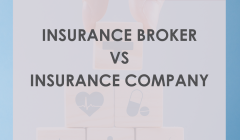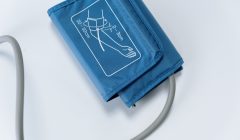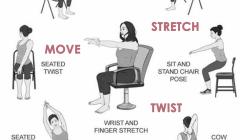Vitality Health Check – What? Why? How?
A Vitality Health Check is a simple and convenient set of essential health screening and preventive tests including: Blood pressure, Blood glucose, Cholesterol or Lipogram, Weight assessment or body mass index (BMI) and non-smoker’s declaration.
What is a health screening?
Health Screenings are medical tests that doctors use to check for diseases and health conditions before there are any signs or symptoms. Screenings help find problems early on, when they may be easier to treat. Getting recommended screening tests is one of the most important things you can do for your health.
The NHS offer a health check to people aged 40-74 every five years, but for anyone outside that age bracket, or for those who want to monitor their health on a more regular basis, a private health screening is a great option to explore.
A health screening is a series of tests and examinations that provide an overview of your current health. Assessments of this kind are usually carried out by a doctor or other health care professional at a private hospital. You will be asked your basic details, such as your height, weight and BMI. In addition to this they will also discuss your lifestyle choices, such as your daily activity levels, your smoker status, your dietary and exercise habits.They may then go on to check vital statistics, such as your blood pressure, cholesterol levels and blood sugar and a urine test to ensure everything is normal.
Health screenings can look into artery health, heart rhythm (resting ECG) and body composition. They can also include a biochemistry check for liver disease, kidney function, cardiovascular health, diabetes, gout and more.
Why is it important?
Health screenings could help with early detection of common, preventable health issues. A quarter of premature deaths are caused by cardiovascular disease with an estimated 50-80% of heart attacks and strokes being preventable. while regular check-ups could prevent 4,000 people a year from developing diabetes. So any checks that could help early detection are of merit.
What is the difference between a screening and a health check?
The main difference is the depth of exploration. A screening is more thorough and comprehensive but regular health checks are equally as important.
A 30-minute Vitality Health check measures your blood pressure, Body Mass Index, glucose and cholesterol levels. You’ll also be asked to confirm your smoking status. These vital stats will help create a picture of your current health. It may be suggested after one of these to go on and have a screening to look at something in more depth.
Which key health issues do they pick up?
Tests help to assess your risks of conditions such as pre-diabetes, high cholesterol and heart disease risk. These often show no symptoms in their early stages so screenings are very important.
Depending on which package you’ve chosen, the range of tests can also include blood profiling, lung function checks and specialist tests including thyroid function and hormones. Most providers offer a core test then additional tests on top for more in-depth packages.
Can health screenings detect cancer?
Certain tests can assess ovarian or prostate cancer risk. Some packages include blood tests, which check for ovarian cancer risk in women (called the CA125 test) or prostate cancer risk in men (called the PSA test).
However, it’s important to remember that a raised CA125 level could also be caused by other conditions such as endometriosis or pelvic inflammatory disease. Likewise, raised PSA level can also be caused by other issues including prostatitis (an enlarged prostate gland) and urinary tract infections.
How long does a health screening last – do I need to prep beforehand?
Most health screenings take around 30-40 minutes. Each provider is different, many ask you to fast before but some do not, depending on which tests you’re having. You are advised to take on plenty of liquid before to help maintain blood circulation and keep you hydrated. There is nothing to fear with these tests, try to stay calm and relaxed.
How much does a screening cost?
Costs vary but taking one of the UK’s leading provider, Bluecrest Health as an example, their entry level package, covering your heart health and stroke risk, liver and kidney health and other general health markers starts at £129.
Bluecrest offer 3 packages:
ACTIVE |
CORE |
EXECUTIVE |
| The Active screening includes over 50 tests covering anything from heart health, stroke and blood clot risks, to some cancer awareness checks. | The Core screening includes everything in Active, plus tests for lungs, blood health and the immune system. | The Executive screening is the most comprehensive option that gives you a complete overview, with everything in Core, plus musculoskeletal health and a 12-month action plan with GP consultation. |
| 22 Blood Readings – 5 Clinician Tests – 24/7 GP Helpline | 35 Blood Readings – 6 Clinician Tests – 24/7 GP Helpline | 38 Blood Readings – 6 Clinician Tests – GP Consultation – 24/7 GP Helpline |
A Bluecrest Health Screening is a great-value, comprehensive, full body MOT to cover your heart, liver and kidney health, stroke risk and other general health indicators (including cholesterol, diabetes, protein and more). All screenings are with an experienced clinician in a private consulting room. They also include the added benefit of 24/7 access to a GP helpline for an entire year afterwards.
Due to COVID-19 restrictions, Bluecrest now offers home kits. These convenient home test kits cover a range of tests including immunity, bone and muscle health through to liver and kidney health risks. All tests are self-collected from home. The costs of these range from £59 to £129.
What happens when I get my results?
After your screening, your blood samples and key readings are sent securely to the laboratory and cardiology team. Experts will then compile your results into a personalised health report.
If there are any critical results, you will be notified immediately. Otherwise, you’ll receive a detailed results report in the post within 21 days. You’ll also get access to your results online via the Health Hub. The results report explains each health check in detail, giving every result a ‘flag’ of red, amber or green. These flags help you to easily identify if any of your results are outside of the normal range for your age and gender.
How do I book one?
Again using Bluecrest Health as an example; simply visit their website, select which screening you would like then select the location and time. Booking complete!
Understanding your health
If you smoke, drink regularly, are overweight and/or generally inactive, the Active screening could help you understand your key readings for heart health, stroke and blood clot risks.
Suffer from stress and sleepless nights? If you’re worried about what a restless mind is doing to your body, the Executive screening gives you a complete overview of heart, artery and blood health, lung function, stroke risk and more.
Where can I do a health check?
A Vitality Healthcheck can be sent to your home, done at a Lloyds Pharmacy or at various locations around the country.
Join Vitality on an eligible plan and you could get up to 81% off a Bluecrest Health Screening at one of 2,000 locations across the UK, every 12 months. When your Bluecrest Health Screening results are in, it’s easy to get healthier and be rewarded from Vitality, too. Active Reward partners include – Apple Watch, Amazon Prime, and ODEON and Vue.
Plus, take advantage of further discounts from partners like Allen Carr’s Easyway (stop smoking programme), Headspace (mindfulness meditation app) and more.
In addition to a health screening you can also earn points by having a Vitality Healthcheck. This easy to access health check can earn you 240 Vitality points. Vitality will also give you another 60 points for each healthy result you get and 200 Vitality points for confirming you’re a non-smoker. You can earn these points once every plan year.
The risks and limitations of screenings include:
It is worth noting that screening tests are not 100% accurate. You could be told you have a problem when you do not – this is called a “false positive” and may lead to some people having unnecessary further tests or treatment as a result of screening. A screening test could also miss a problem – this is called a “false negative” and could lead to people ignoring symptoms in the future.
Even if your screening test result is normal or negative (meaning you are not at high risk), you could still go on to develop the condition.



























